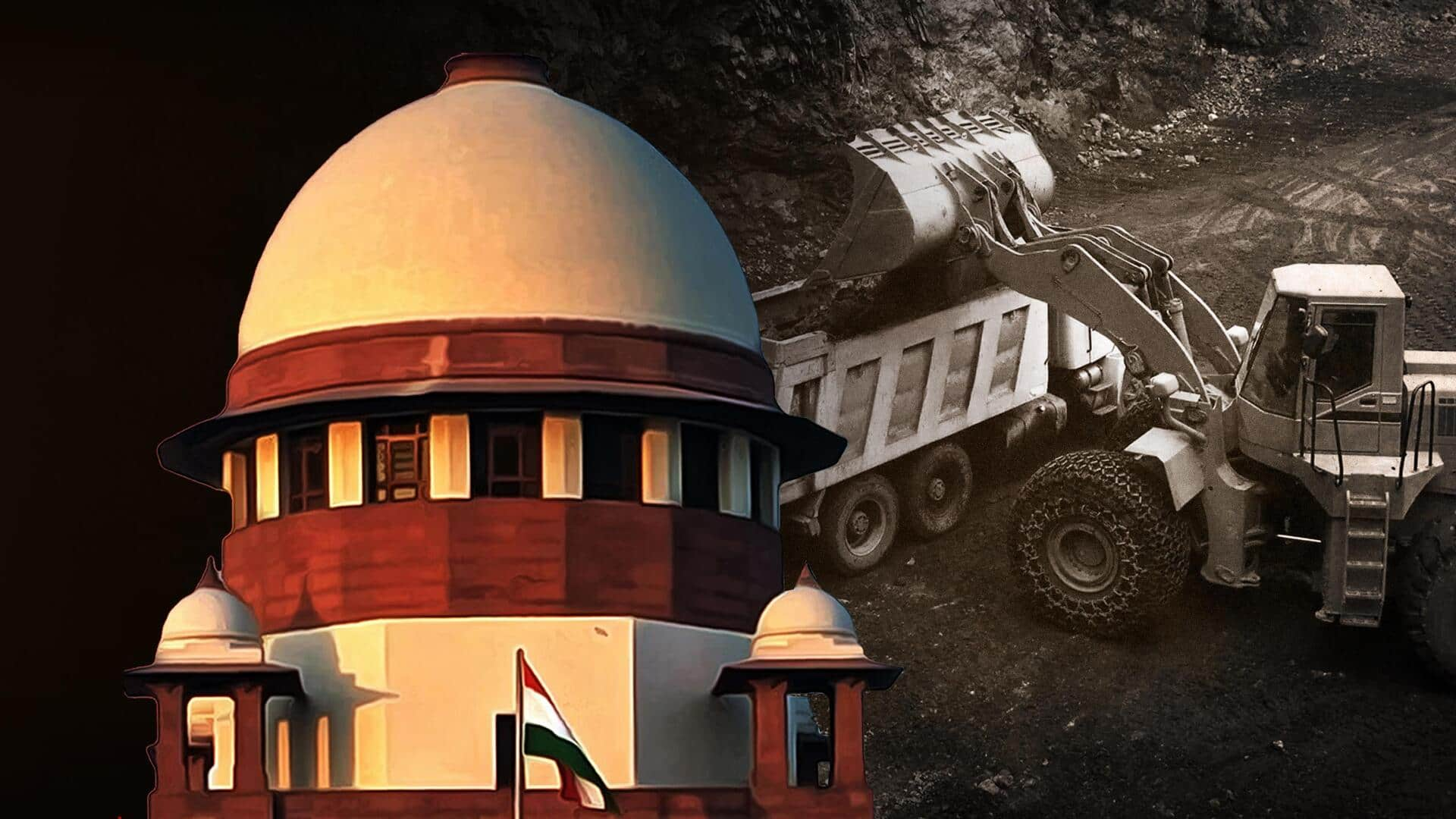
Mineral-rich states can recover dues on royalty on minerals: SC
What's the story
The Supreme Court on Wednesday ruled that its July 25 judgment, which allows state governments to tax mining and related activities, will apply retrospectively but only for transactions after April 1, 2005. "States can levy and renew demand for taxes but the demand of tax shall not operate on transactions made prior to April 1, 2005 ," the bench, led by Chief Justice of India (CJI) DY Chandrachud, said in the verdict.
Tax details
SC allows states to renew tax demand
The apex court also stipulated that the time for payment of tax demand shall be staggered in installments over a period of 12 years commencing from April 1, 2026. However, it ruled that any levy of interest and demand of penalty made on or before July 25, 2024, shall be waived off. The court directed states not to impose a penalty of any kind on payment of dues.
Previous judgment
SC had earlier ruled royalty not a tax
The nine-judge bench had previously held on July 25 that royalty paid by mining operators to the Central government is not a tax and that states have the power to levy cess on mining and mineral-use activities. This decision was then reviewed to determine whether it would apply prospectively or retrospectively. Various states and the Centre had argued that judgment should be strictly prospective to avoid commercial losses for public sector companies.
Dissenting view
Justice BV Nagarathna did not sign the judgment
Justice BV Nagarathna did not sign the judgment as she had dissented in the main judgment of July 25. The August 14 order will also be signed by only eight judges due to Justice Nagarathna's dissenting view in the original judgment. The verdict will help mineral-rich states such as Odisha, Jharkhand, West Bengal, Chhattisgarh, Madhya Pradesh, and Rajasthan, as their governments can now levy additional fees on mining corporations operating in their territory.